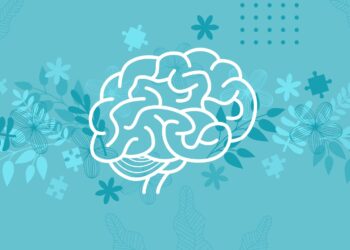Emotional distress describes strong feelings of sadness, anxiety, or anger that disrupt daily life. Loss, trauma, chronic stress, and relationship issues often trigger these emotions. Emotional pain clouds judgment and makes clear thinking harder. People may react impulsively and struggle to make balanced decisions. As a matter of fact, emotional suffering can build over time and push individuals toward harmful habits. With this in mind, many people seek quick ways to escape their feelings. Emotional distress fuels addictive behaviour because it drives people to repeat actions that numb the pain, even for a short while. Unresolved emotions create a cycle of dependency that damages health, relationships, and self-esteem. In order to prevent this, addressing emotional distress early helps prevent addiction.
Emotional Distress and the Brain’s Reward System
Emotional distress disrupts brain chemistry and triggers strong biological reactions. Stress lowers serotonin levels and raises cortisol, which increases tension and sadness. Dopamine, the chemical that signals pleasure, drops and makes positive feelings harder to reach.
People often seek relief from this imbalance through substances or compulsive behaviours. Alcohol, drugs, food, or gambling create short bursts of dopamine that mask emotional pain.
Above all, the brain starts to connect these actions with quick comfort. This learning process strengthens with repetition and turns temporary relief into a habit. Each stressful event triggers the same craving for escape. The brain repeatedly searches for that brief reward. In short, breaking this cycle requires addressing both the distress and the unhealthy coping methods.

Self-Medication with Prescribed and Over-the-Counter Medications
Many people turn to painkillers, sedatives, or sleep aids to manage emotional distress. They seek fast relief from anxiety, sadness, or ongoing stress. Some increase doses without consulting a doctor because they believe stronger effects will come quicker. Others start mixing medications with alcohol, stimulants, or depressants to heighten results or balance side effects. This behaviour creates serious risks and exposes an individual to various dangers of combining drug types. The body reacts unpredictably, and overdose can occur. Furthermore, misuse leads to dependency because the brain learns to connect medication use with comfort.
In contrast, proper medical guidance keeps dosages safe and reduces these risks. Doctors monitor interactions and taper use when possible. Without guidance, people often chase temporary relief and fall into a harmful cycle. The short-term effects feel helpful, but long-term harm grows steadily. For this reason, safe use and professional oversight must stay a priority for anyone facing emotional distress.
How Addictive Behaviour Fuels Emotional Distress
Addictive behaviour often deepens the very pain it tries to mask. People feel guilt and shame after indulging, which adds to their emotional distress. These feelings grow stronger as harmful patterns continue, making it harder to stop. Relationships suffer because trust breaks down and arguments increase. Loved ones may withdraw support, leaving the individual isolated. Self-esteem drops as personal goals and values fade into the background.
Then again, financial problems arise when money is spent on substances or destructive activities. Physical health also deteriorates from lack of care and harmful use of drugs or alcohol. This combination of factors keeps the cycle strong. Each setback fuels more distress, which triggers more addictive behaviour. The loop becomes harder to escape as both emotional pain and life problems worsen. Above all, breaking the pattern requires understanding how each action strengthens the addiction and addressing the damage step by step.

Early Warning Signs of Addiction
Addiction often begins with subtle behavioural changes that many overlook. People may start hiding their actions or lying about where they spend time. Secrecy creates distance from friends and family and fuels more stress. Mood swings become frequent, and anger or sadness appear without clear reasons. Responsibilities at work, school, or home get neglected as addictive behaviours take priority.
Changes in sleep patterns, appetite, and energy levels also signal trouble. Some sleep far less while others stay in bed for long hours. Eating habits may shift from overeating to skipping meals. For this reason, noticing these red flags matters. Emotional distress fuels addictive behaviour, so catching the early signs helps stop the cycle before it worsens. Seeking help from a professional or a trusted person can make a difference. Acting quickly offers a better chance to reverse harm and regain stability before addiction takes hold.
Healthy Ways to Cope
Managing emotional distress requires consistent habits that promote balance. Mindfulness practices like meditation or focused breathing help calm racing thoughts and reduce stress that is caused by the influence of drugs on mental health. Many practice journaling since it provides a safe outlet to process emotions and clarify personal challenges. Therapy offers structured support and helps people address the root causes of pain. Exercise lifts mood by boosting dopamine and serotonin levels while improving overall health.
In like manner, supportive relationships play an important role. Friends or family can provide encouragement and remind individuals that they are not alone. Small daily actions such as setting realistic goals, maintaining a healthy sleep routine, and eating balanced meals build resilience over time. These practices strengthen emotional stability and reduce reliance on unhealthy coping methods. Long-term emotional health protects against setbacks and makes it easier to handle difficult situations. Above all, consistent care for mental well-being breaks the cycle that leads to addictive behaviour.
Professional Help and Recovery Options
Professional help gives people structure and guidance when they struggle with emotional distress and addiction. Therapists use methods like cognitive behavioural therapy to change harmful thought patterns and teach healthier coping skills. Trauma-focused therapy addresses deep emotional wounds that often drive addictive behaviour. Group counseling provides a space to share experiences and gain support from others facing similar challenges.
Similarly, detox programs and rehabilitation centers offer medical supervision for those dependent on substances. These settings create safe environments to begin recovery and rebuild healthy routines. Professionals also connect individuals to community resources, ongoing counselling, and aftercare plans. Seeking help early increases the chance of long-term success. For this reason, people should reach out to doctors, therapists, or trusted organizations as soon as possible. Recovery strengthens emotional health, improves relationships, and restores hope for a more stable and fulfilling future.

Breaking Free from the Grip of Emotional Distress and Addiction
Emotional distress fuels addictive behaviour by driving people to seek short-term comfort. Breaking the cycle requires healthy coping methods, professional help, and supportive relationships. Small steps toward emotional stability build long-term strength. Addressing distress early protects mental health and prevents addiction from taking control of life.













Discussion about this post